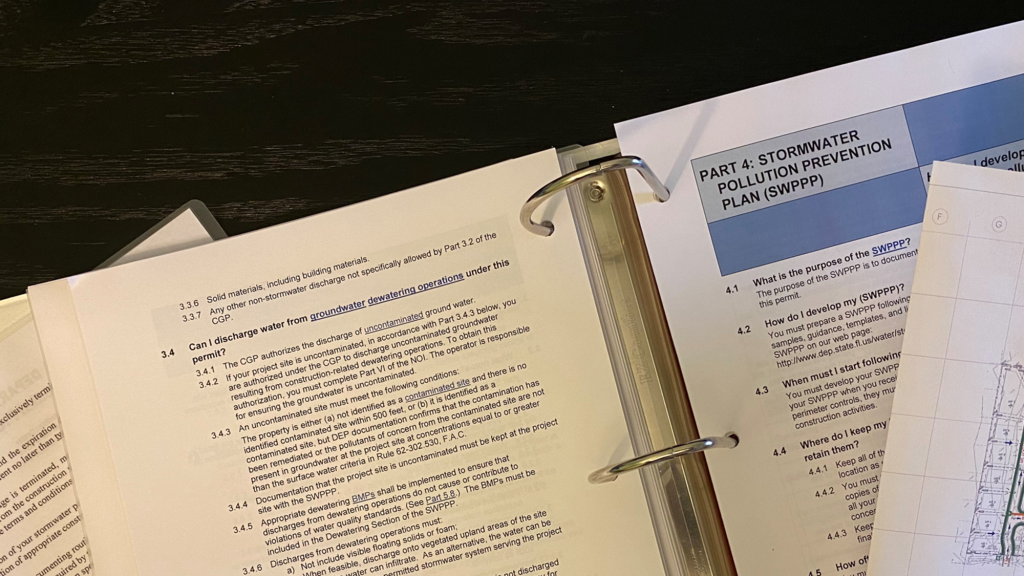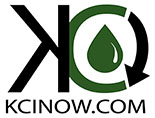
A Stormwater Pollution Prevention Plan, or SWPPP, provides an on-site reference to help reduce pollution impacts from construction activities. Having a SWPPP clearly documented helps avoid fines in case a county or state inspector visits the site and begins inspecting the various pollution prevention practices and stormwater management systems currently in place.

A SWPPP is a comprehensive plan that outlines strategies and best practices to prevent stormwater pollution. Therefore, managing the SWPPP is the catalyst for a successful inspection. Incapsulating the scope of an inspector’s role to three repeatable actions will ensure maximum performance assisting clients always remain compliant.
Number 1: The stormwater permit requires the site operator to include and log information about weather conditions on inspection reports as applicable. Identifying critical rainfall thresholds that may trigger erosion and sedimentation on the construction site involves understanding the duration and frequency of rainfall events that pose a risk.
Number 2: The site map is the foundational element of a professional and functional SWPPP. All site maps are not the same. A professional stormwater inspector will study the site map carefully prior to executing the inspection. The site map will display all potential pollutant sources, areas of concern, and tracks the locations and dates of major construction activity. The site map provides a visual representation of the various BMPs implemented. As the project progresses, the site conditions may change, and new Best Management Practices (BMPs) may be added or removed.
Number 3: Maintain current records such as compliance documents, inspection processes, and compliance authorized team certifications and signatures. The SWPPP is the place where all documents and records are stored and demonstrates the level of client participation. It also helps log and dictate maintenance needs and closed out corrections that have been previously documented and needed maintained.

Utilizing this powerful approach enables a field stormwater consultant to perform a quality inspection. A well-managed SWPPP will be beneficial during inspections, audits, or when reporting to regulatory agencies. It demonstrates the commitment to environmental compliance and responsible practices.
KCI can implement, monitor, and manage the SWPPP, helping you prevent harmful conditions from stormwater exposure. Call us today on 888-346-7779.



